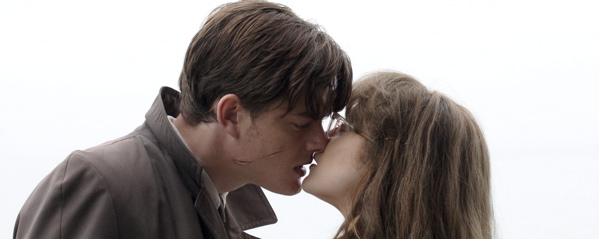By Ray Bennett
TORONTO – Rowan Joffe’s film of Graham Greene’s 1938 novel “Brighton Rock” takes a gothic approach to the story of a young thug obsessed with hell with little of the writer’s subtlety and too much reliance on a loud quasi-religious choral score.
In his first film as director, screenwriter Joffe (“The American,” “28 Days Later”) sets the drama entirely in Brighton on the UK’s Sussex coast but transplants the story from the book’s 1930s to 1964 during the Mods vs. Rockers gang wars. That cultural conflict and the burgeoning ’60s social revolution, however, have little to do with the central story, which is a typical Greene tale of good versus evil.
John Boulting’s 1947 film, also known as “Young Scarface,” made a major star of Richard Attenborough but while Sam Riley (“Control”) acquits himself well, the new film is not likely to do the same for him. The director’s injudicious emphasis on Martin Phipps’ score also does not help.
Reliable veterans Helen Mirren and John Hurt and the highly promising young actress Andrea Riseborough add to the film’s appeal but it will probably be restricted to literary buffs curious to see a new Greene picture.
The production is faithful to the novel, starting with a murder that triggers a gang war over the protection racket in the seaside town. Pinkie (Riley) is a nasty young hoodlum with big ambitions whose leader is knifed to death.
Vengeance leads to the death of the perpetrator Hale (Sean Harris) but not before he has involved an innocent waitress named Rose (Riseborough) as he tries to evade Pinkie’s henchman Spicer (Phil Harris) on the Brighton Pier.
With Rose now a vital witness, Pinkie courts her to keep her quiet but discovers that she also is a lost soul but one who innately on the side of the angels. “I’m bad. You’re good. We’re made for each other,” he says.
Meanwhile, Rose’s boss Ida (Mirren), who runs a pub and a posh tea shop, starts to ask questions about her late friend Hale and with a local bookie named Corkery (Hurt), she gradually puts the pieces together. Pinkie is willing to marry Rose to keep her quiet even though the girl believes he truly loves her. He’s also willing to sell out his fellow gang-members by going to work for rival hoodlum Colleoni (Andy Serkis).
Greene’s examination of the tug of war between Ida and Pinkie over Rose’s fate plays out as in the book but the other characters are given short shrift. Riley continues to grow as an actor but lacks the feral impact of the young Attenborough or Richard Widmark.
Riseborough, her beauty made dowdy and winsome, captures with delicacy Rose’s willingness to forsake heaven for the love of a wretched man. Mirren makes Ida knowing and tough but also susceptible to the shy approach of the longtime friend played by Hurt as a wounded soul.
The film looks good with splendid images of the Brighton Pier and the marvelous white cliffs in Sussex known as the Seven Sisters where key scenes take place.
Venue: Toronto International Film Festival; Sales: Optimum Releasing; Production companies: BBC Films, Kudos Film and Television, Optimum Films; Cast: Sam Riley, Andrea Riseborough, Helen Mirren, John Hurt, Andy Serkis, Phil Davis, Sean Harris, Nonso Anozie; Director, screenwriter: Rowan Joffe; Producer: Paul Webster; Director of photography: John Mathieson; Production designer: James Merifield; Music: Martin Phipps; Costume designer: Julian Day; Editor: Joe Walker; No rating, 111 minutes.
This review appears in The Hollywood Reporter

